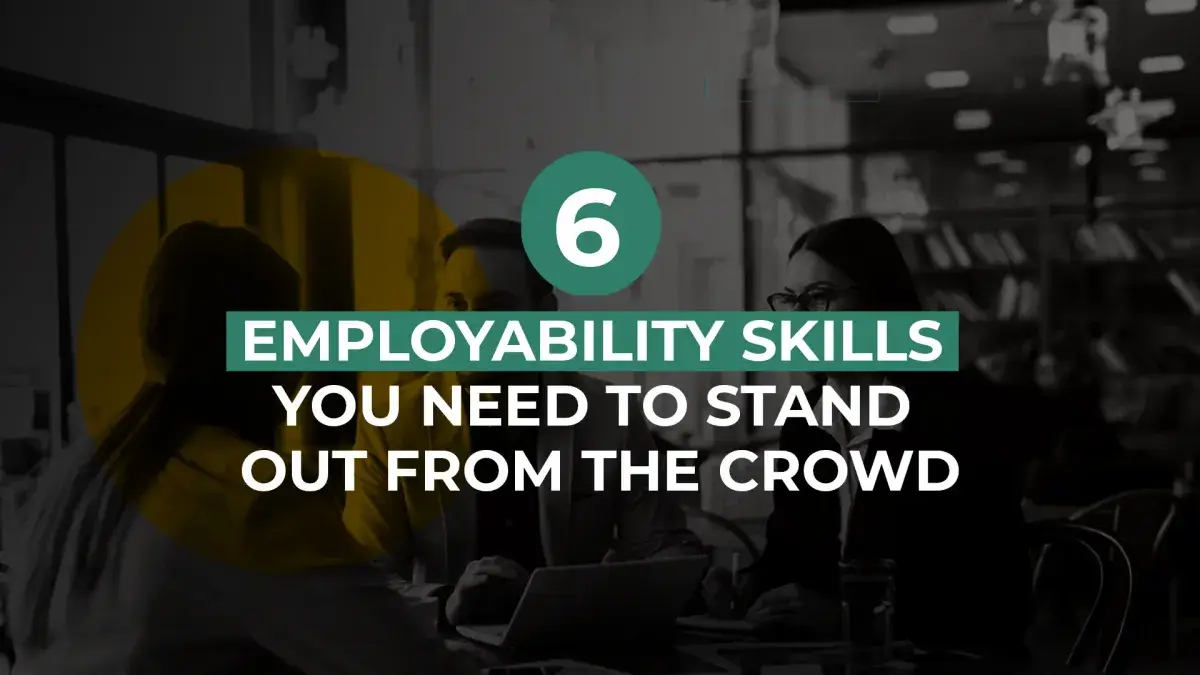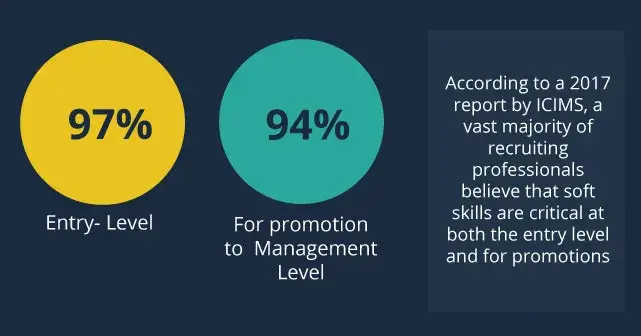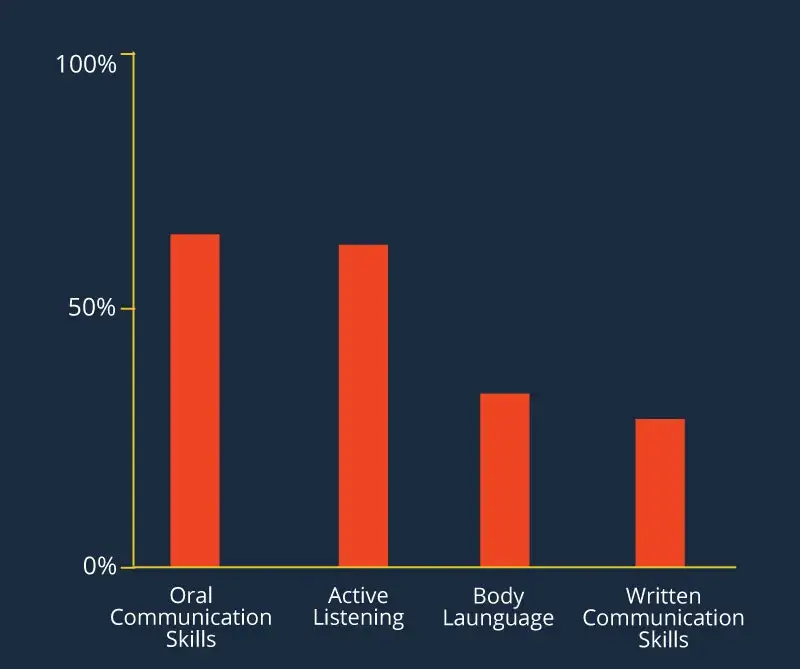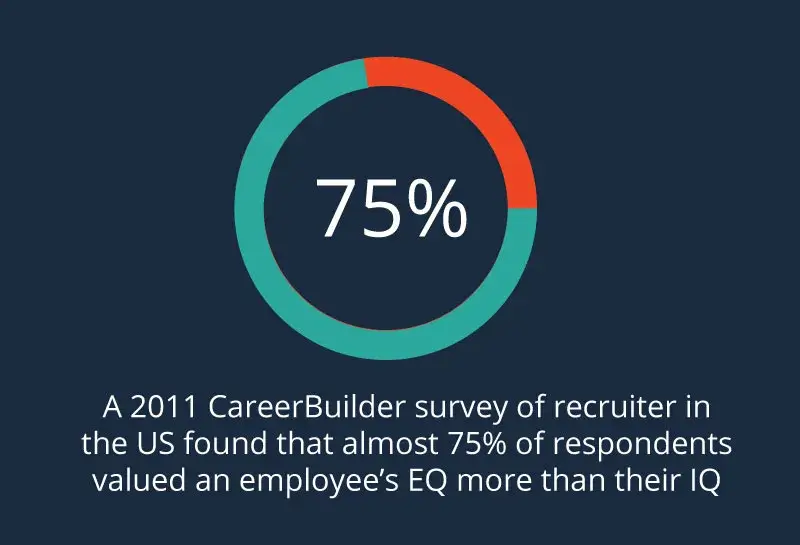The Top 6 Employability Skills You Need to Stand Out from the Crowd

Here's What We've Covered!
Today’s monde du travail (French: the world of work) is dynamic and complex and offers myriad opportunities that would have been unheard of even a decade ago. Furthermore, our Internet-obsessed, socially-connected human community abounds with a plethora of new ideas, advanced technologies, and innovative thinkers. While these are all welcome developments for the world in general, they make the world of work Volatile Uncertain Complex Ambiguous.
For anyone who wants to have a meaningful career and not just a regular job in this VUCA environment, it is not enough to have an education or even the relevant job-related training. He or she also needs to have the right employability skills.
According to a 2017 report by ICIMS, a vast majority of recruiting professionals believe that soft skills are critical at both the entry-level and for promotion:

Even the World Bank’s 2019 report The Changing Nature of Work states that “Many jobs today, and many more in the near future, will require specific skills” to make the most of the many economic opportunities in today’s evolving labor markets.
These skills are referred to as employability skills.
What are the Employability Skills?
Employability skills are the general skills that make someone desirable to a hiring organization. They go beyond qualifications and experience and are the core skills and traits that are needed in almost every job. Because you can apply these soft skills to almost every industry, they are also known as transferable skills.
Many employers are willing to invest time, effort and money into training new hires for job-specific skills (also known as ‘on the job training’). However, while hiring, they usually look for candidates who already have other soft skills because they are more valuable and harder to teach.
The 6 Most In-demand Employability Skills for Today
In today’s VUCA job environment, the most important employability skills are:
a. Socio-behavioral skills – i. Communication skills ii. Teamwork
b. Cognitive skills – iii. Problem-solving iv. Decision-making
c. Self-management skills – v. Time management and organization vi. Emotional intelligence
Socio-behavioral skills
On any recruiter’s employability skills list, these skills are often the most crucial ‘must-haves’.
i. Communication skills: Communication happens every day in every workplace – between managers and subordinates, between co-workers, between employees and customers, and every other human-human combination imaginable. This is why the ability to effectively communicate with others is so critical for career success.
Communication can be oral or written. It can even be non-verbal – an area commonly known as body language.
For a person to be considered a good communicator, he needs to be able to listen actively, empathize with others and draw logical conclusions. He must also have the ability to build a rapport with others and adapt his own language to suit his audience.
In an interview, if you are up against another candidate with similar qualifications and hard skills, recruiters believe that these communication skills will set you apart!
ii. Teamwork: The ability to work in teams and collaborate with others is another essential employability skill. Well-organized teams offer the power of synergy – the ability to have a collective identity and achieve more together than any of its members could as individuals. Therefore a person with good teamwork skills can:
- Work well with people of different backgrounds, ages, and ethnicities
- Recognize and harness each team member’s strengths to achieve common team goals through knowledge- and skill-sharing
- Resolve conflicts to promote and nurture a positive team environment
- Build relationships, respect others’ opinions and participate in group decision-making
- Accept accountability for results

Cognitive skillsCognitive skills include a variety of attributes such as the ability to learn, to process/analyze knowledge and apply it in effective ways (problem-solving), and to evaluate options and make a decision (decision-making). For career success, it is critical to develop and practice cognitive skills consistently.
In job interviews, hiring managers typically don’t assess a candidate’s cognitive skills by asking “Can you think?” Instead, they ask specific questions to judge how well he or she can do specific tasks that require thinking, i.e. the use of cognitive skills.
iii. Problem-solving: An overwhelming majority of hiring managers (over 60% according to the ICIMS report) identify problem-solving as a skill that can get a candidate hired. This is because every firm faces obstacles and only those who can cope with these challenges and find solutions can thrive.
iv. Decision-making: Problem-solving and decision-making skills are sometimes used interchangeably although there are differences. Good decision-making requires a mixture of skills such as identification of options, the ability to make a judgment and implement the decision effectively.

Self-management skills
These skills are very difficult to teach and even more difficult to implement. However, they play a decisive role in determining professional (and personal) success.
v. Time management and organization: These skills are critical if an individual is to manage his workload, deliver results consistently and maintain a work-life balance. Moreover, most jobs today require multi-tasking which is impossible to do without the ability to manage one’s time and organize one’s responsibilities. These skills require a person to:
- Prioritize and manage their tasks and people
- Effectively utilize their mental capacity
- Delegate
- Keep track of and meet multiple commitments
vi. Emotional Intelligence (EQ): A 2011 CareerBuilder survey of recruiters in the US found that almost 75% percent of respondents valued an employee’s EQ more than their IQ.
An employee with high EQ can:
- Solve workplace problems
- Make better decisions
- Avoid conflicts or resolve them
- Forge better workplace relationships through empathy and active listening
- Respond more effectively to criticism
An emotionally intelligent person is more enthusiastic, confident, creative and professional. He can also manage himself and his work more effectively for better results.

Other critical, in-demand self-management skills include:
- Self-motivation
- Initiative
- Accountability
- Stress management
- Learning and self-development
A final word…
Employability skills consist of diverse abilities. In today’s hyper-competitive world, if you don’t have the right employability skills, you might fade away and leave all chances of success for your competitors and peers.
But if you do have the right employability skills for the right job, not only can you get in the door; you are also more likely to earn promotions and advance your career.
Read more: Top 7 personality development skills for graduates in India
Resent Post
>
Best Study Abroad Courses for Commerce Graduates
>
Emerging commerce career options in India (2026): From CA to Data Analyst
>
ACCA Opportunities You Didn’t Know About – Think Beyond Audit!
>
Which Courses After 12th Commerce With High Salary Are in Demand Worldwide?
>
How to Find ACCA Jobs Online After Qualifying: Real Portals, Tips & Career Guidance
Follow Us For All Updates!






